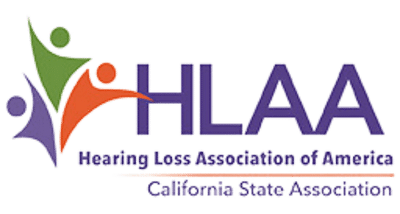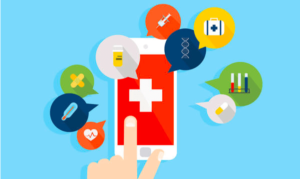By Zina Jawadi
Throughout my life, I have found that proactive self-advocacy has been crucial to success in any academic program. My approach to accommodations did not change after I was accepted to medical school. In my first article of this medical school series, I elaborated on why I chose medicine. In this second article, I will share advice, some of which I received from others, on how to prepare for the first year of medical school (didactic year) after committing and prior to the beginning of the academic school year. Many of these suggestions will also apply to students entering undergraduate, graduate, and vocational programs in health and other fields. This article describes accommodations for people who are deaf or hard-of-hearing (D/HoH), and whose primary mode of communication is not necessarily ASL.
Prepare Your Accommodations Letter Prior to Beginning Medical School
The most important advice I can share is to begin the accommodations process early, well before the start of the school year. Why? First, the fall quarter tends to be hectic and some accommodations such as acquiring certain technologies will take time to arrange. Because some disability services offices may not be accustomed to such a proactive approach, you may need to present the advantages of early preparation and it may be necessary for your medical school administration to explain on your behalf. Second, there are almost always delays for reasons you have not considered. For example, you may also be required to submit additional medical documentation. I recommend having an in-person meeting or at least a call with the disability services office to explain your disability, medical documentation, and needed accommodations and to understand school policies. Some schools require more or different medical documentation than others, so understanding what the office is looking for will be a tremendous help when you are filling out the application. If you do not already have the proper medical documentation to receive the accommodations, gather it from your healthcare providers. (As a side note, recognize that many policies were designed for undergraduate students but are enforced for all students registered with the disability services offices). Third, beginning early gives you sufficient time to establish rapport with relevant stakeholders and to obtain any medical documentation (e.g., a new audiogram). Overall, preparing for my accommodations has always taken me months, so I definitely recommend starting as early as possible. At the very least, it will help ease your transition!
While I will focus only on the accommodations process after committing to a specific medical school, I believe it is essential to do thorough research on all schools to which you apply in order to understand what kinds of accommodations and support they will provide you.
Read the 2018 AAMC Report on Accessibility and Inclusion in Medical Education
I highly recommend reading an excellent report by Lisa Meeks, PhD, and Neera Jain, MS, CRC, titled Accessibility, Inclusion, and Action in Medical Education: Lived Experiences of Learners and Physicians with Disabilities. The report contains outstanding advice for learners with disabilities including specific examples related to hearing loss. (Report is available online.)
Find an Audiologist Close to Your School
It is important to find an audiologist who will be able to connect you with local resources and provide you with the best technology to use for medical school. My audiologist at Pacific Hearing Inc. in Los Angeles is outstanding. He provided substantial help with my transition and recommended technology that transformed my educational experience. If you wear hearing aids, I strongly recommend purchasing new ones with the latest technology before beginning school because it may take time to adjust to them. The latest technology has incredibly valuable features that will make your life much easier in school. (Check if your school’s health insurance plan covers hearing aids. For example, the University of California plan does cover them.) Some health insurance plans also cover hearing aids. California has State programs that provide financial assistance for assistive technologies such as hearing-accessible stethoscopes. And the university disability services offices can also help.
Understand Your Learning Environment, and Make Modifications When Needed
Before the start of the school year, set up meetings with the medical school to investigate the different types of labs and classes offered and how each is taught. Ideally, visit the labs and lecture halls when students are present; you may discover acoustical challenges you had not previously considered. Some examples:
• The lecture hall may lack a microphone or it may have a microphone and amplification but you still may not be able to hear. Information Technology (IT) may be able to modulate the sound to improve audibility.
• Labs may be noisier than you anticipated and you may need assistive technologies to help you hear in large work groups. I found the Bluetooth microphone to be a game-changer in labs.
• If there are any pre-recorded lectures, find out where they are recorded to make sure they are being recorded with a proper microphone and in a lecture hall with good acoustics.
Understanding the environment in which you will be attending classes will prepare you for success.
Find the Right Captioner
Since medicine is a field with technical scientific terminology, you will need a captioner who specialize in transcribing medicine. Ideally, find one or two captioners to transcribe all lecture material because topics in medical school build on one another. Because captioners have different styles, work with your disability services office to arrange meetings or trials with different captioners and choose someone whose work is compatible with the way you learn best. (I am so grateful to have a phenomenal captioner for my live lectures. Thank you, Audrey. You are a star!)
Inform the School That You Need Captioning as Soon as Possible; Clarify and Confirm Captioning Accommodation Policies
As soon as you have made a decision about which medical school to attend, inform the school and the disability services office about captioning needs. This will allow them sufficient time to prepare the logistics and processes.
Before the start of the school year, work with the disability services office to ensure that captioning expectations are established. There are many variables, some of which are:
• When the recording of a lecture is posted, it should include captions even if the lecture itself was live captioned.
• Captions should be posted in a timely manner after a lecture. Timely manner must be clearly defined, whether in hours, calendar days, or business days. (A Friday lecture captioned within one business day may not be posted until Monday, preventing students from studying the material over the weekend.)
• Captioning must be done by someone with expertise in medical terminology and reviewed to ensure completeness and accuracy.
Request Clear Face Masks
Presenters wearing clear face masks will make it easier for you to hear in classrooms, clinics, and labs. Clear face masks help everybody. My classmates are so excited about the clear face masks and find them immensely “cool.”
Do Your Research on Stethoscopes
I completely underestimated how much time it would take to find a stethoscope that works for me, and I’ve discovered that others in the medical field who have hearing loss also needed several attempts. Take time to review an excellent resource by the Association of Medical Professionals with Hearing Losses (AMPHL) comparing different stethoscopes at https://www.amphl.org/comparison-table. I’m aware that some people with hearing loss also use high-end regular stethoscopes, as opposed to electronic stethoscopes with amplification. (Regular stethoscope models are not listed in the report.) Try out several stethoscopes over the summer to identify which one is most effective for you. Contact companies that distribute medical supplies to find out their trial and return policies, and determine if they offer student discounts. Amplified stethoscopes are considered an adaptive technology and, as a result, should be covered by your disability services office.
Find Relevant Hearing Loss Resources Through HLAA and Other Support Networks
HLAA has an incredible network across the nation comprised of brilliant, supportive, and kind individuals, all passionate about hearing loss. Members include many hard of hearing medical professionals. Having a mentor in the field and a support system will make your transition smoother.
Also, ask your disability services office to connect you with other D/HoH medical students and those in health-related fields, and with medical students who have non-hearing disabilities. These experienced students may have suggestions specific to your school.
I wish you the best of luck in your school endeavors. It is a tremendous privilege and honor to be a medical student, and I continue to be amazed and humbled by my communities. Thank you to everyone who has supported me along the way.
Zina Jawadi is currently attending medical school at UCLA with the David Geffen Medical Scholarship, a merit-based full scholarship. Before medical school, she was a Decision Analytics Associate at ZS Associates, an international management consulting firm specializing in health care. Zina earned a BS in biology and MS in bioengineering, both from Stanford University. Since 2019, Zina has served on the HLAA Board of Directors. She served on the HLAA-CA Board of Trustees from 2013 to 2019, holding the positions of secretary, vice president., and president. She has prelingual bilateral sensorineural hearing loss and wears hearing aids.


